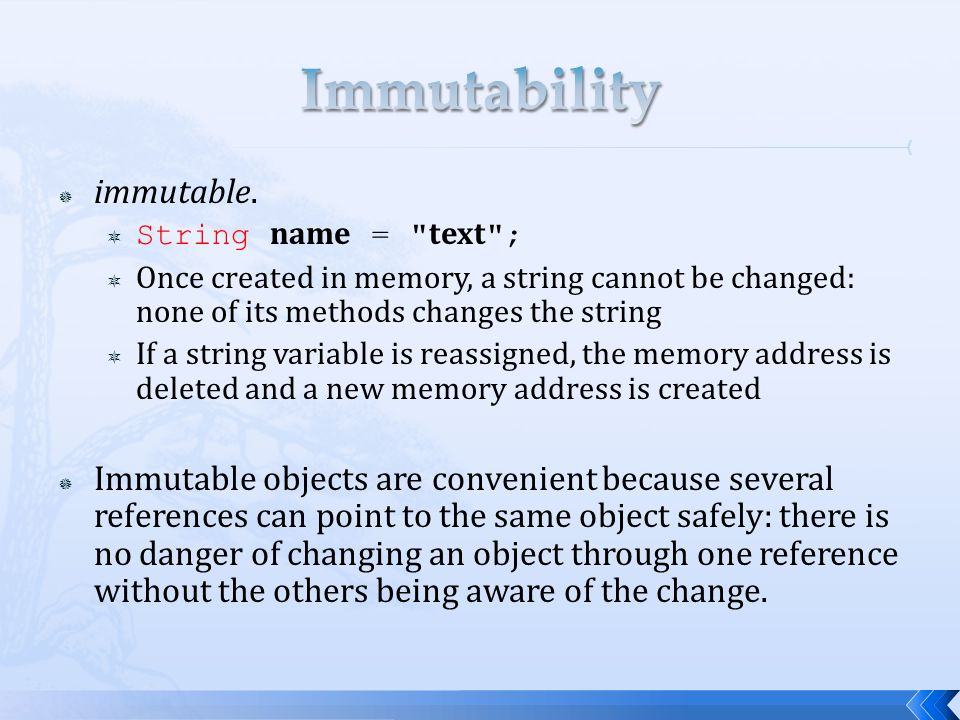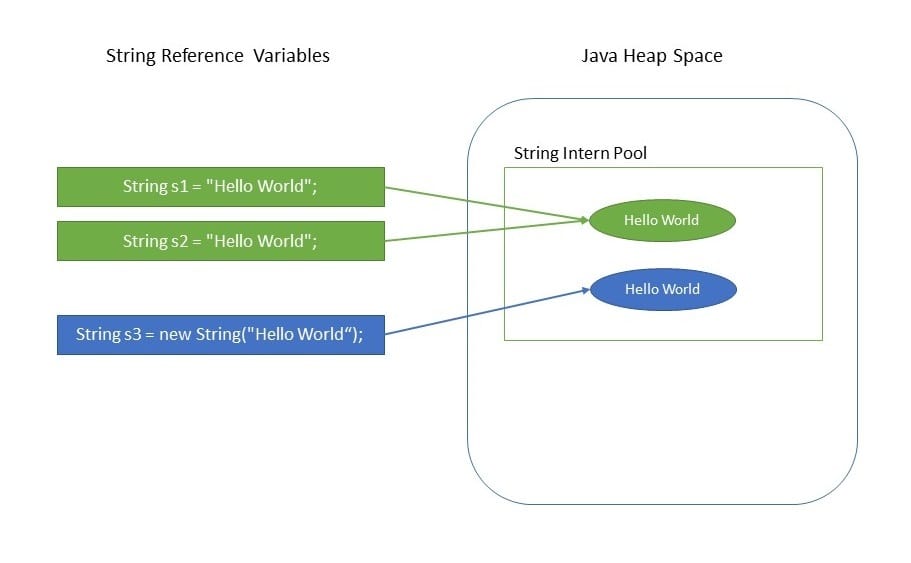What Is Immutable Strings and Exactly How It Works
In the world of shows, understanding the concept of unalterable strings is critical for producing durable and protected applications. Immutable strings refer to strings that can not be changed after they are created, guaranteeing information honesty and predictability within the code. This essential concept plays a vital duty in various shows languages and provides an one-of-a-kind method to dealing with data. By discovering the intricacies of just how unalterable strings function, one can discover a globe of benefits and opportunities that can raise the top quality and effectiveness of software application growth.
The Basics of Unalterable Strings
Immutable strings, as an essential idea in shows, are personality sequences that can not be changed once they are created. This implies that once a string is assigned a worth, that value can not be modified. In languages like Python and Java, strings are immutable items, causing different implications in regards to memory management and data stability.
Among the essential benefits of unalterable strings is that they give a feeling of safety in data control. Because the web content of an immutable string can not be customized, it makes certain that the initial information continues to be intact, lowering the risk of unintended changes throughout program execution (Why are strings immutable in Java?). This home also streamlines debugging processes, as developers can trust that once a string is specified, its value will certainly not be inadvertently changed
In addition, unalterable strings help with effective memory use. When a new string is developed based on an existing one, instead of modifying the original string, the brand-new worth is saved individually. This strategy improves efficiency by minimizing memory fragmentation and streamlining memory allotment processes. Overall, comprehending the essentials of unalterable strings is vital for grasping shows ideas and maximizing code effectiveness.
Advantages of Immutable Strings
Structure upon the security and performance advantages of immutable strings, their advantages encompass boosting code dependability and simplifying concurrent programs tasks. By being unalterable, strings can not be modified after production, which removes the risk of unplanned changes in the information they save. This inherent immutability guarantees that as soon as a string is developed, its worth stays continuous throughout the program's execution, lowering the chances of pests brought on by unexpected alterations.
In addition, unalterable strings add to code reliability by making it easier to reason concerning the state of a program. Since strings can not be transformed, designers can trust that a string will certainly constantly hold the same worth, simplifying debugging and upkeep efforts. This predictability causes more secure and dependable codebases.

Application in Shows Languages
Within numerous shows languages, the unification of immutable strings is a basic element that influences how data is dealt with and controlled within More hints code structures. The execution of immutable strings differs across various programming languages, with each language providing its very own mechanisms to sustain this principle.

On the other hand, languages like C and C++ do not have built-in support for immutable strings. Developers in these languages have to manually execute immutability by imposing regulations within their code to protect against straight modifications to string objects.
Ideal Practices for Collaborating With Unalterable Strings
When handling unalterable strings in shows languages like Java and Python, adhering to finest practices makes sure safe and reliable information adjustment. One of the key best techniques is to use StringBuilder or StringBuffer rather than directly adjusting strings, especially when dealing with comprehensive concatenation operations. These courses supply mutable choices for string control, assisting to stay clear of unnecessary memory allocations and improving performance.
Additionally, when working with sensitive information such as passwords or API keys, it is important to avoid keeping them as ordinary message in unalterable strings. Making use of protected storage space devices like char arrays or specialized libraries for handling sensitive details aids alleviate security risks associated with immutable strings.
Real-world Applications and Examples
Checking out useful implementations of immutable strings in numerous markets reveals their considerable effect on information integrity and system dependability. In the healthcare sector, immutable strings play a critical role in making certain the safety and discretion of person information. By stopping unauthorized modifications to delicate details such as medical documents and prescriptions, immutable strings help preserve compliance with strict personal privacy guidelines like HIPAA.
Monetary institutions also take advantage of the unalterable nature of strings to improve the security of consumer data and purchase records. Immutable strings help protect against fraudulence and unapproved changes to financial details, offering a durable defense versus cyber dangers and ensuring the count on and self-confidence of customers.

Final Thought
Finally, unalterable strings are fixed and unchangeable sequences of Go Here characters that provide benefits such as thread safety and improved efficiency in shows. They are applied in numerous programs languages to make certain data stability and security. Ideal methods for functioning with unalterable strings include staying clear of direct modifications and making use of methods that return brand-new string items. Real-world applications of unalterable strings include information file encryption, caching, and string adjustment jobs.
Unalterable strings refer to strings that can not be modified after they are created, making sure data stability and predictability within the code. When a new string is created based on an existing one, instead than customizing the initial string, the new worth is kept independently.In languages like Java and Python, strings are immutable by default, indicating that as soon as a string item is produced, its worth can not be altered - Why are strings immutable in Java?. Best methods for functioning with unalterable strings consist of staying clear of direct adjustments and using approaches that return new string objects. Real-world applications of immutable strings include information file encryption, caching, and string control tasks
Comments on “Why Are Strings Immutable in Java? Trick Reasons and Benefits Explained”